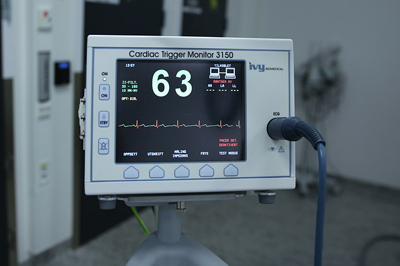Call for your appointment today 914-666-4665 | Mt. Kisco, New York

In their article “First case report of inducible heart block in Lyme disease and an update of Lyme carditis” by Kannangara and colleagues.
This is the first case report of an inducible heart block in Lyme disease. The young man initially presented to the emergency department with syncope. “ECG showed sinus bradycardia with first degree AV block, with a PR interval of 480 ms (NL 120–200 ms),” the authors wrote.
An exercise stress test done by the cardiologist was terminated early. The patient developed dyspnea, and his ECG demonstrated a progression of first-degree AV block to high degree AV block.
The majority of AV blocks in Lyme carditis are reversible with antibiotic treatment.
Once back at rest, the patient’s high degree AV block reverted to first degree AV block. “He had a similar episode while walking in the hallway wearing a Holter monitor, on day 5, also reversible with rest,” the authors explain.
[bctt tweet=”The first case of inducible heart block in Lyme disease is reported in a 37-year-old man.” username=”DrDanielCameron”]
The patient was diagnosed with Lyme disease based on exposure, history of tick bites, a positive IgG Western blot test, the absence of another cause and his recovery following a combination of intravenous ceftriaxone and oral doxycycline.
He has since returned to work and has been symptom-free for 2 years.
Kannangara and colleagues summarized the growing list of cardiac problems in Lyme disease, as described in the medical literature:
- First-degree heart block
- Wenckebach phenomenon (Mobitz type I)
- Mobitz type II
- Complete Heart block / High degree AV block
- Bundle branch block
- Sinus arrest / Sinus pauses
- Supraventricular tachycardia
- Atrial fibrillation
- Junctional tachycardia
- Fascicular tachycardia
- Ventricular tachycardia
- Ventricular flutter
- Bradycardia
- Narrow QRS escape rhythm
- Prolonged QT
- ST depression / T inversion
- ST elevation
- Asystole
- History of Wolf Parkinson White Syndrome. In a case of sudden death due to LC (Lyme Carditis).
The authors concluded their article with several pearls:
- Lyme carditis may present with heart block as the sole or initial presentation with or without other manifestations of Lyme disease.
- First degree heart block is the most common manifestation, which could rapidly progress to complete heart block.
- As illustrated in this case, exercise and stress testing should not be carried out in Lyme disease patients until complete recovery from heart block.
- Lyme carditis should be suspected in patients with cardiac symptoms living in an endemic region, particularly in younger patients with no other etiology evident.
Related Articles:
Can we avoid using a pacemaker for Lyme carditis with high-degree AV block?
First case of reversible complete heart block due to Lyme disease reported in Canada
Lyme carditis causes complete heart block in 26-year-old man
References:
- Kannangara DW, Sidra S, Pritiben P. First case report of inducible heart block in Lyme disease and an update of Lyme carditis. BMC Infect Dis. 2019;19(1):428.



